Healing From Loss in 2020
TW: Mention of death during the Coronavirus pandemic
The longer this pandemic lasts, the more our lives are affected. Graduations, weddings, family gatherings, new experiences; so much of it has been cancelled, rescheduled and changed that almost nothing in 2020 is what we expected. This is loss.
Even if you didn’t lose your house or have to bury someone you loved this year, you still have likely experienced some very real losses that deserve to be acknowledged: loss of quality time, loss of connection or relationships with others, loss of security, loss of opportunities that might’ve existed had the pandemic never happened.

And this is to be expected. Every time we move into a new phase of our lives (and yes, the pandemic can be considered a phase), there’s a part of the old version of our life that has to die with that change so something new can take its place.
So whenever the world changes, or we change within it, the inherent collateral damage is some sort of loss.
As pieces of your old life die and new pieces are born, you might try to help others through it by “keeping it together,” or by putting on a brave face.
But if we want to move gracefully through this new phase of our lives (and eventually on to the next one) the best thing we can do for ourselves is acknowledge what we have lost, and give ourselves a chance to heal from those losses.
You Have a Reason and a Right to be Sad
Many of us have a tendency to look at the big losses of others (ex. loss of life) and say “I have no right to complain” or “I have no right to be hurting from this because other people have it so much worse than I do.”
On one hand, you’re right that other people have it worse. (If you’re living in the United States and have access to electricity and a computer, then there are definitely people who have it much worse.)
But this doesn’t mean that your loss is fake or inconsequential. It can simultaneously be true that you are lucky to have what you have AND your losses hurt.
I worry that many people are using the thought “other people have it worse” to ignore many of their losses, and repress the pain they feel from it.
For several months, I did exactly that. I told myself I was fine with change, that life was as good as I could ask for considering the circumstances.
But then there were moments where I’d think, “I really miss _____,” or “Geez, I haven’t seen or hugged ______ in 9 months.” And I found that the longer I told myself I didn’t have a reason to be upset, the more my sadness would resurface in unexpected ways.
I lashed out at the people around me, cried at inopportune times, lost the motivation to do many of the things I loved, and started being far more pessimistic than I ever have in my life.
It can simultaneously be true that you are lucky to have what you have AND your losses hurt.
-Self Love Atlas
And as I observed my own behavior, I was reminded of conversations I’d had with social work, therapy, and psychology students from my university. I heard many of them remark something along the lines of, “all of us are going to have unaddressed trauma from this,” and “the pandemic will end, but it’ll leave a lot of pain and damage behind when it does.”
And with that, I realized, if we don’t find a way to be honest with ourselves about how this pandemic affects us, and address it, we might carry that damage with us even after it ends.
So How Do We Heal?
It wasn’t until I was reading Martha Beck’s book “Finding Your Own North Star,” that I learned grieving is our bodies’ way of healing from our losses.

And since I, like everyone else, had endured losses during this pandemic, I took space to grieve. I acknowledged all the things I felt I’d lost in 2020, and gave myself permission to be sad about it for the purpose of healing and hopefully moving forward.
Through my grieving process, my motivation returned, and I began to feel much more stable and confident than I had when I told myself I didn’t have a right to experience that sadness/pain.
So if you find your motivation dipping, or your emotions functioning differently than they have in the past, it might be your body telling you that you need to grieve, even if you feel that your losses are small in comparison to the losses of others.
With this in mind, I want to encourage you to allow yourself to grieve.
Even if letting go of our resistance to our own sadness is uncomfortable at first, it might be the only way we can move through and forward from this pandemic, without carrying it’s baggage with us after it ends.
Important Note: Grieving is not a solution for clinical depression (which typically has causes that differ from the loss I’m talking about here).
Grieve for the Purpose of Healing
Many people resist going through the grieving process because they see it as “ a sign of weakness,” “unproductive,” or “complaining.”
But it takes bravery and strength to let yourself feel unpleasant emotions.
It is productive to allow yourself time to heal.
And it isn’t complaining if you do it right.
But how can we grieve our losses the right way?
How to Grieve Small Losses
- The first step to allowing yourself to heal through grieving is to acknowledge your losses. Name what it is you’ve lost, including the things you feel like you’ve missed out on this year.
- Make space for grieving. If you schedule yourself a time to grieve and provide yourself a place to do this, it will go much more smoothly. If you really want to get serious with it, take a whole day or a weekend.
- Note: This is something you do by yourself, or with someone you trust. The purpose is to be honest with ourselves. It should never be about fishing for pity or sympathy from others.
- Next, give yourself permission to grieve this loss. Quiet your thoughts about your losses not being “that bad” for a moment. And acknowledge how you feel about these losses.
- For example, “I’m sad about this,” “I miss my friends,” “It hurts not celebrating family traditions in the same way this year,” “My heart aches,” etc.
- Don’t resist any feelings that come up. The way to heal through grieving is to let yourself feel sad. This is the kind of release that many of us hold back by minimizing or ignoring our losses.
If you have already grieved freely for yourself, or don’t feel like you need to grieve, then perhaps you could help others by making it okay for them to feel sad and grieve.
You could help them make space in their lives by encouraging them and telling them it’s okay to struggle, and it’s okay to be sad.
But if you do think grieving could help you, then start by making that space for yourself. Allow yourself to mope, but do it with purpose. Do it knowing that temporary grief is a part of your healing process.

The Danger of Ignoring Your Losses
If you’re still feeling skeptical about allowing yourself to grieve. Consider this:
If someone you loved was experiencing a physical pain in their chest, would you want them to ignore it? Would you want them to silently deal with that pain, hoping it went away? Or would you want them to do what they could to address the pain, so they could heal and hopefully not face bigger problems later on?
Generally, we want the people in our lives to take care of themselves. So I think the answer is pretty obvious.
Address it.
If we ignore our pain, physically or emotionally, it can fester. It can build up and then show up later in unexpected ways.
If you don’t acknowledge the emotional pain you feel, your pain might show up later in more severe forms like panic attacks, sharp interactions with other people, depressive moods, a sudden urge to cry, etc.
So save yourself the trouble. Be brave now. Be honest with yourself. And allow yourself to heal.
In Conclusion
It is expected and completely valid to be feeling sadness, grief, loss, and pain during this challenging time. None of us knew how different, shocking, and scary this year would be. And yet, here we are. Wading our way through this tsunami of change and wondering when things will go back to normal.
I just hope you give yourself the gift of compassion and allow yourself to feel whatever you need to feel (the same way you would to someone you love).
Did this post resonate with you? If so, I’d love to hear from you! Leave a comment or send me a message to share your thoughts. For more uplifting content, check out some other posts on my blog, follow me on instagram @morgan_barbret, or sign up for the Self Love Atlas Newsletter!
Cheers,
Morgan Rita Barbret

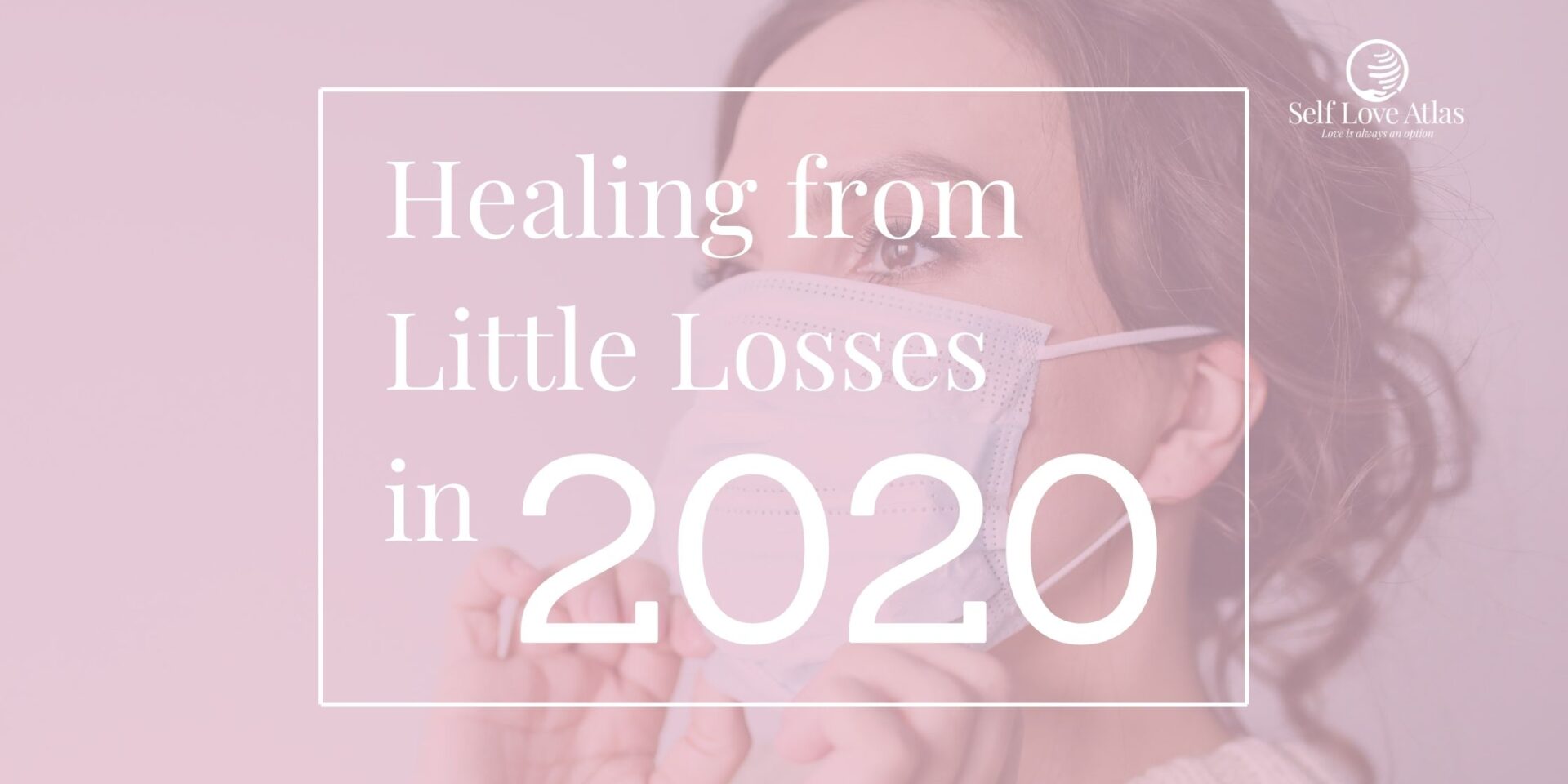
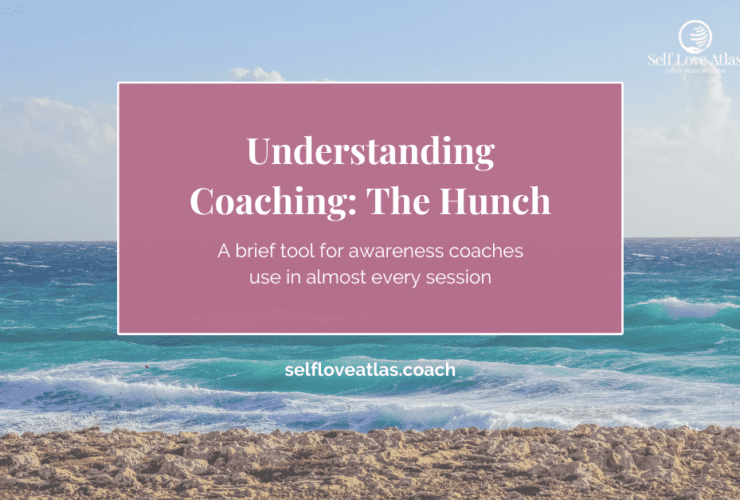
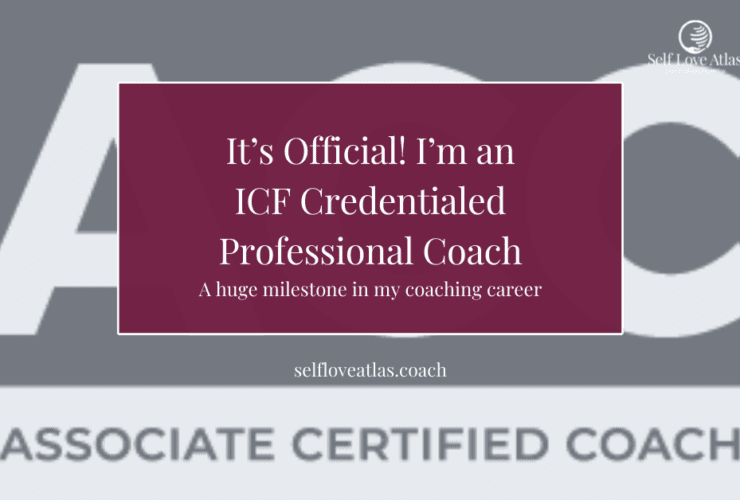
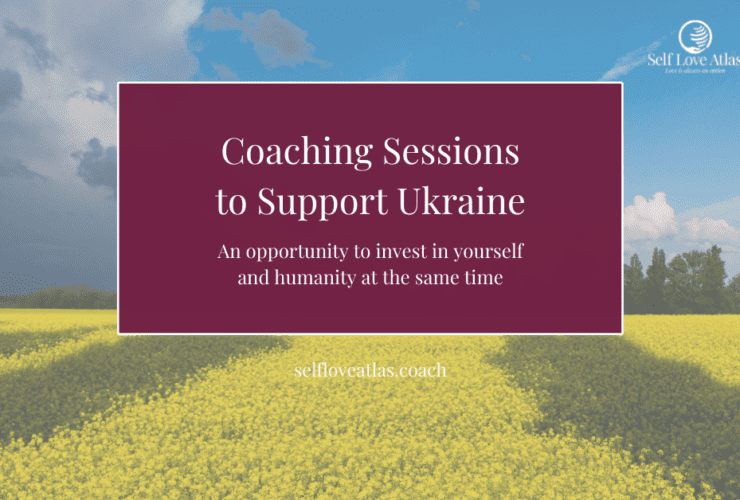
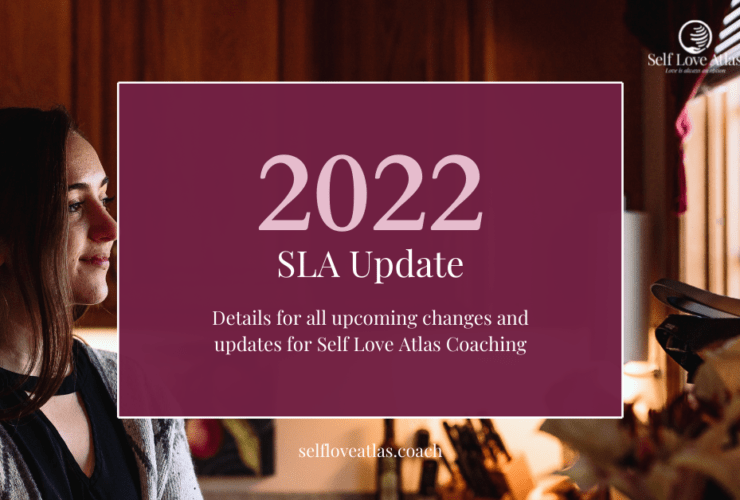
I keep telling myself that I don’t have it that bad. But when I see the effect on all of my family and friends, it breaks my heart. Losing long time friends sent me into a bit of a tailspin. These are excellent suggestions. Thank you, Morgan.
Thank you for reading Aunt Bobbie! Heartbreaking is a good word for it. this is a rough time and you’ve been impacted directly in so many ways. I’m wishing you the best in your healing in the coming months ❤️
Love you!
Good post. I believe that everyone needs to grieve in their own way. I like to go sit alone with some special music and think. I very rarely grieve when other people are around because I have had to be the strong one in most cases. That is why, when the time is right, I go to my private place and grieve. It works for me.
Thanks Jerry! I love that you have a system for yourself that works for you. And I agree, having some special music can really be helpful in this kind of process.
Giving myself some private time to grieve and be with music works for me too.
Here’s a link to a song I was using to both write this post and to let myself experience my grief recently
https://open.spotify.com/track/5IWO9I7qZ3smQou3eECxgY?si=8Xe5W1z8Q_y9s8yNXPUnQw
Thoughtful post. When I begin to feel sad, I always try to find some activity to take my mind to a different place. After reading your post I am thinking I should surrender to the feelings rather than push them away. I have tried to find good and act in a positive way during the COVID nightmare. But still get angry and judge the non mask wearing ejits whenever I go out. I have to get a handle on that because my anger takes too much energy and I can’t change their selfish behavior.
Hey Charlotte, you’re so right that we can’t control other people’s behavior. It can feel hopeless sometimes wanting other people to change or act differently when they don’t/won’t.
As for feeling your feelings, if you are willing to feel whatever emotions come up for you, they will never get a chance to build up inside of you. I love that you’ve been doing what you can to find good and act positively, perhaps this release of emotions will make doing those things even easier in the long run. (In my experience, it has, thankfully.)